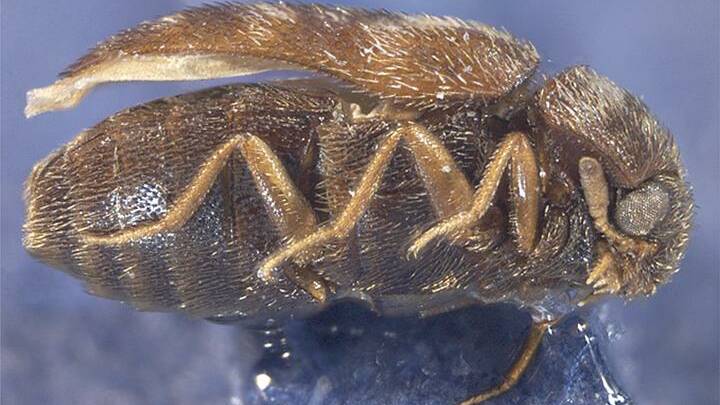
THE LEADER of one of Australia's grain grower peak bodies has expressed concern at a growing numbers of khapra beetle incursions and is urging government to ramp up protection measures.
Barry Large, Grain Producers Australia chairman, said in 2020-21 there were an unprecedented 19 khapra beetle interceptions at the Australian border, many hidden in household goods such as baby highchairs, whitegoods and cardboard.
The small beetle is one of the most feared crop pests on the planet, with biosecurity experts in Australia estimating the bug could cause a whopping $15.5 billion damage to our agricultural economy over 20 years if it became endemic here, due to loss of production, control costs and loss of market access.
"GPA has serious concerns about this dramatic escalation in local incidences, combined with significant increases in the forecast demand and future global movement of commercial goods via shipping containers, which these devastating pests hitch-hike on," Mr Large said.
He said it served as a warning of the important of Australia's biosecurity program, saying the return on investment to protect Australia from exotic pests was undeniable and that government should increase its spending to stop the pest getting in.
"If every $1 spent on biosecurity prevention is meant to save $30 in eradication, we need to ensure this investment is targeted with laser-like focus, to deliver better, stronger systems to ensure khapra never enters a single Australian farm," he said.
Mr Large said the government needed to bolster protection and monitoring services.
"GPA is urging stronger protections and more urgent government actions to properly safeguard grain producers and our communities - especially to maintain market access for our high quality Australian grain exports," he said.
Khapra beetle is primarily a pest of stored grain, especially in hot and dry environments, such as those encountered in Australia.
The beetle, which originated in India, can cause grain weight loss of up to 70 per cent if left untreated.
Mr Large said the trade sector needed to be responsible for its actions and pay its share of the management costs.
"We understand shared responsibility is essential to the success of the National Khapra Beetle Action Plan 2021-2031, which we welcome being released by the Australian Government, but complacency is not an option or one that Australian grain producers and our communities can afford," he said.
"Genuine accountability must be placed onto the industries creating the biosecurity risks, by making them more responsible for importing pests such as khapra beetle into Australia.
"This tougher management approach must also ensure those imposing the risks are responsible for costs, not growers, while making a greater contribution towards the costs of biosecurity surveillance, eradication and management."
Start the day with all the big news in agriculture! Sign up below to receive our daily Farmonline newsletter.


